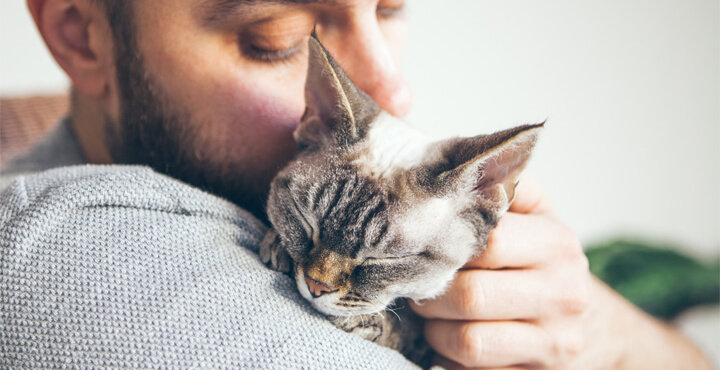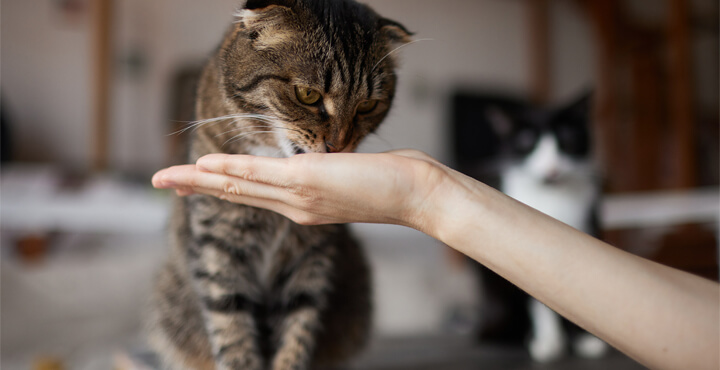
Some people may not know that cats can get Urinary Tract Infections (UTIs). Older cats in particular are much more susceptible to picking up UTIs, the symptoms of which are usually easy to spot.
So, what do you do if you suspect your cat has a UTI? WHISKAS looks into feline Urinary Tract Infections…
Urine infections in cats
Feline Lower Urinary Tract Disease, or FLUTD is a broad term that includes several different Urinary Tract Infections affecting a cat’s bladder and urethra.
FLUTD can be caused by various things, but the most common feline UTI is cat cystitis, or inflammation of the bladder, which happens when bacteria travels up the urethra. The condition is more serious in male cats, as they have a longer, narrower urethra which if blocked means they physically cannot urinate. This condition is serious and needs to be treated immediately.
Signs of urinary infections in cats
If your cat exhibits any of the following symptoms, they need to see a vet quickly, as these can all be signs of a Urinary Tract Infection:
• Blood in urine
• Struggling to produce urine
• Repeatedly going to the toilet
• Urinating in and around the home
• Dribbling urine on their bed
• Wetness around their genital area
• Painful urination
• Licking genital area more than normal
If you see any of these signs, take your cat to the vet immediately to get a diagnosis and treatment.
If your cat has had a UTI previously, this means they may be more likely to get one again. It’s worth keeping an eye on their toilet routine to ensure all is well.
How to treat cystitis in cats
Cystitis in cats can be difficult to treat, but a vet will be able to assist you with a treatment plan. There are several ways to treat feline UTIs, such as:
Medication – cystitis can be uncomfortable and painful for your cat, so the vet may recommend antibiotics or pain relief.
Stress management – Stress can contribute to the effects of cystitis, making the issue worse. While your cat recovers, it’s important to try and keep them as relaxed as possible. Senior cats especially can be more susceptible to stress and effort should be made to create a calm environment.
Diet – Your cat should be eating a complete and balanced diet, with nutrients tailored to the life stage and life cycle of the cat. WHISKAS wet food for senior cats contains all the necessary vitamins and nutrients your senior cat needs to stay healthy, as well as coming in a variety of different flavours.
Water – Drinking plenty of water is extremely important for feline urinary tract health. To ensure your cat drinks water, water bowls should be accessible in several locations around your home. Make sure senior cats can easily reach the bowls without having to travel too far. It is important to provide fresh water in clean bowls every day as cats will not drink ‘old’ water, which is why lots of cats like to drink from a running tap!
Always ask a vet for advice if you suspect your cat is unwell.








